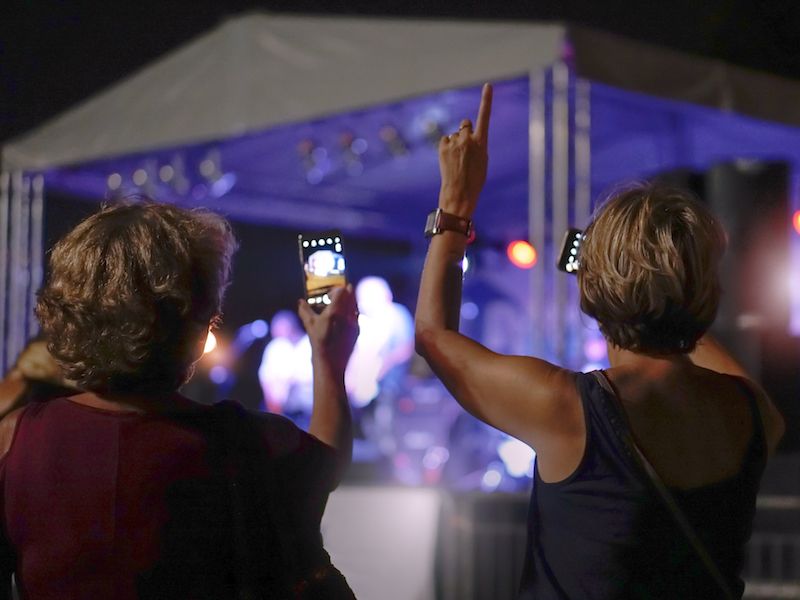
We’ve been looking forward to summer fun all year: trips to the beach, chilling out by the pool, and injured hearing? You might find yourself in environmental scenarios or exposed to other loud sounds this summer that are hidden hazards to your hearing. Any noises above 80 decibels could injure your hearing, while lasting hearing loss can take hold in swimming pools or other bodies of water. You have to take precautions and be mindful of your surroundings in order to protect your hearing this summer. Here are six of the summer’s hidden hearing dangers.
When You go to Concerts, Wear Hearing Protection
Whether you’re at an indoor arena or an outside show venue you still need to use ear protection during live music. Live music can reach over 90 decibels, even at outside concerts, which is within the danger zone of hearing loss. That’s why it’s always a smart idea to use earplugs regardless of whether you’re seeing a show indoors or outdoors. You can still hear the sounds with earplugs it’s just dampened slightly. If you’re taking young children to a concert, consider getting them a heavy duty set of earmuffs since their ears are much more vulnerable than those of adults.
Fireworks Are More Than Just Loud
Honestly, there are a lot of reasons to avoid fireworks in the summer. It’s not just the 4th of July shows which are pro that can hurt your ears, we mean the backyard fireworks that trigger many of injuries during the summertime. Along with causing hand injuries, blindness, and home fires, personal fireworks can also result in significant damage to your hearing since they’re known to achieve volume levels of 155 dB. This 4th of July, leave the fireworks to the pros and enjoy the show from a protected and sound distance.
Mowers Can Bring About Loss of Hearing
If you care about your lawn, your edger, trimmer, and mower are your best friends. But the muffled sensation in your ears is an indication that your hearing has been injured. That’s because the lawn tools, which are constantly loud, impact your hearing over time. Maybe you’ve noticed lawn professionals using some kind of hearing protection, next time you work on your yard with noisy power equipment, you should take a hint from them and wear earplugs or earmuffs.
How to Protect Your Hearing at Beaches And Pools
Huge numbers of people suffer from swimmer’s ear every summer, which happens when bacteria-packed water becomes stuck in your ear canal. Painful earaches and swelling result when the bacteria infects the ear. It’s not exclusively rivers and lakes that hold these bacteria, they can sometimes be found in pools and hot tubs if they aren’t cleaned and treated properly. No permanent injury should occur if you get your hearing assessed by a hearing professional. To be safe, when your swimming in your pool, use specialized swimmers earplugs and keep the chemical balance correct to decrease the likelihood of getting swimmers ear.
Boats and Other Water Sports
Summer is a taste of freedom for the people who enjoy being in a boat on the water, smelling the salt air from the ocean or the fresh breeze from the lake. But, boat and jet ski engines are often loud,they can get up to over 100 decibels. Continual subjection to that much noise for around 15 minutes can lead to permanent hearing impairment. Once more, it’s really in your best interests to use a pair of disposable, foam earplugs while you’re out on the water to make sure you don’t inadvertently harm your ears.
Car Races Can Hurt Your Hearing
It doesn’t make a difference what kind of auto racing you like, midget, Formula 1, drag racing, motorcycle Formula 1. If you go to a lot of auto-races this year, they all present a risk. It’s calculated that sound levels can go over 120 decibels at some races, which is absolutely in the danger zone for hearing damage. As mentioned earlier, your kids should wear muffs whereas you should use earplugs at least. Because you may not be able to enjoy the sounds of any races in the future if you don’t.
